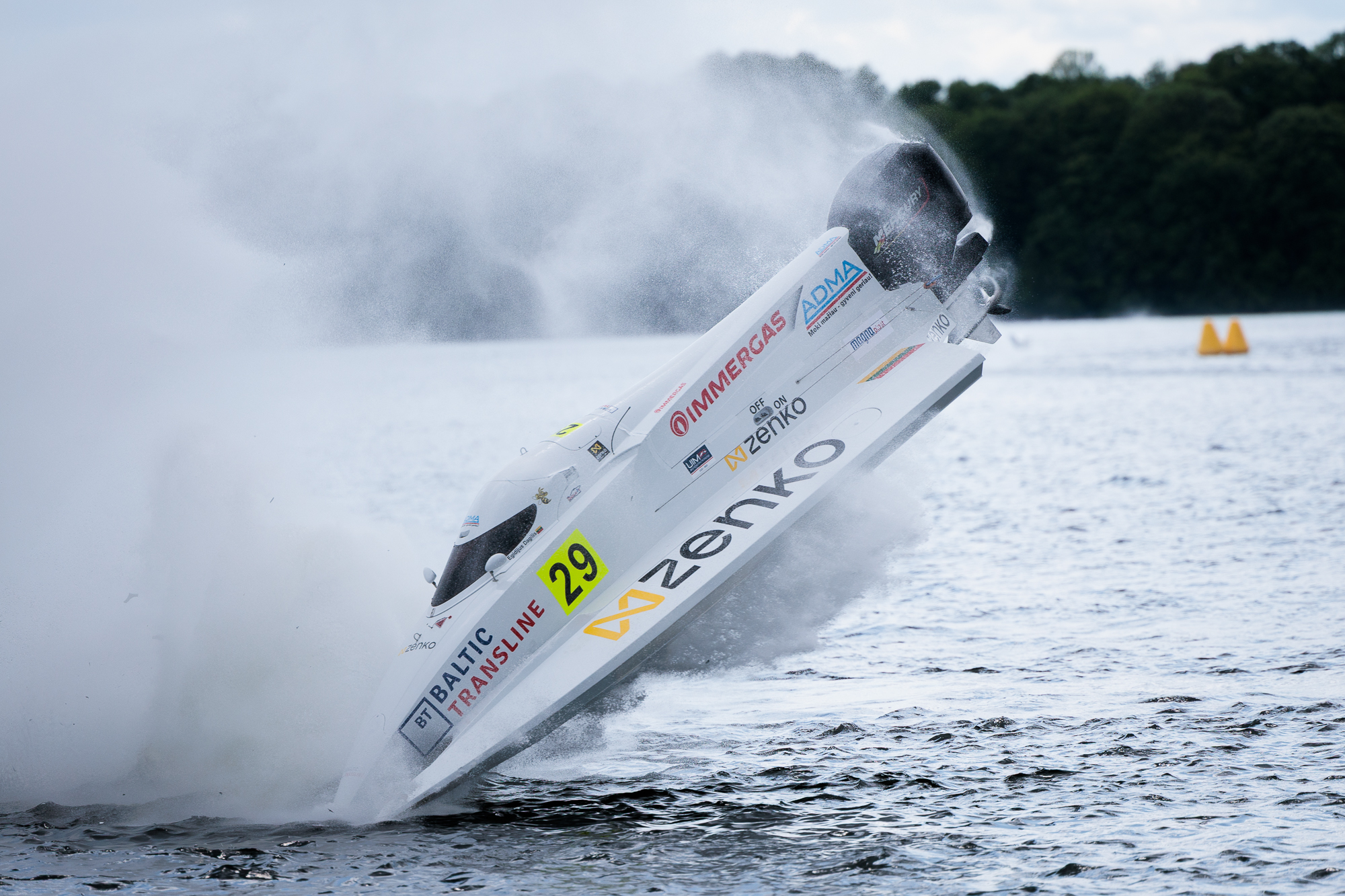Paralyzed by the search for that one, perfect solution
/s3/static.nrc.nl/wp-content/uploads/2025/04/10113951/data130634948-ce85b2.jpg)
I had not been on the Einsteinweg for twenty years. In the Leiden Bio Science Park the building was still there, the cube of dark blue glass, where my first and only job started. Now I stepped in with my son (15), who is already carefully orienting in a study choice.
Somewhere above was the corridor with the editors of university magazine Marewhere I worked. In addition to the elevator, which perhaps has hoisted me there a thousand and one time, the weekly was still in the bins. Coincidentally with a front page story about the faculty that is located here nowadays, archeology.
As a student I also visited a lot of open days (biology, psychology, philosophy …), but according to the strategy that I also encourage the final choice (Dutch) I also encouraged: follow your feelings. That is what we hear parents around us say. Despite all the choice guides and rankings, such a decision is largely intuitive and coincidental. That is how it went with the high schools of our children: immediately on the information day they felt at home.
Because the archeology presentation was held where the canteen used to be in this building, my memories automatically started their own archaeological investigation, and there I saw them again at the table: Hans, Bart, Ron, Hester, Bruno, Arjen, Frank … also on that editorial team-in retrospect I also ended up stupidly for my writing career. A messy time in which I followed my messy instincts.
Strange, I thought, how significantly smaller or downright trivial choices – the color of the bathroom tiles, the type of laptop – never come about without endlessly considering and weighing.
The weekend before it had largely gone to find a destination for the summer holidays, followed by the unfortunately inevitable reservation of camping spots and houses. TripAdvisor, Zoover, Travel Blogs, Google Streetview Inspectorate of the area. Swip photos, count stars. If you finally, tired, made the decision, then the next horror looms up halfway through the booking form. No! The option to find a specific place. Help! Above a map-PDF’je you have to weigh the morning sun from place E15 against the forest rest of A6 and the spacious surface of B3, which in turn borders a field with three ping-pong tables. The wonderful thing is not so much that you do all those things – no family member will forgive you if you fail to do so and therefore are assigned a rotten spot next to the toilets – but that we do not do them in some choices.
The popular culture has declared the intuitive choice saint
Take love. The spark must skip, you have to fall for each other, in one and a half seconds. With such a fundamental choice of life, every rational or practical argument (« she lives so nice and close to my work ») would be a fatal letdown. In love we fall back on an ancient belief in branch goddinnen and cupidopijlen.
Also for your place of residence, your studies and your job, a jet intuition must light up the selection process. They are domains where a cost-benefit analysis is not sufficient. You choose them ‘from the heart’. You can find your ‘dream job’ or ‘falls in love’ with a house. At least it always goes on TV: « We walked in and knew immediately: this is it. » Just like in the movie, I want it. The popular culture has declared the intuitive choice. But is it also the best?
A 7.5 is fine
Psychology distinguishes between two types of decision makers. Maximizers, who go for the very best option, to Satisficers, who are satisfied with what is enough. Satisfice, composed of ‘Satisfy’ and ‘Suffice’, sounds hip enough to be conceived by a self -help guru on sneakers, but it already dates from a 1947 publication by the American economist and psychologist Herbert A. Simon.
The Maximizer is the one who cannot click Netflix movie without a comparative study of trailers and the IMDB rating. The Satisficer dives unsuspectingly into what seems nice to him, and finds an experience that is worth a 7.5 fine.
Initially I suspected that here was the key for my camping study choice paradox. We are rational and maximize with unimportant choices (camping, restaurant), while we intuitively satisfied with the important (love, friendship).
The explanation would then be that the essential life issues simply lack measurement points. There is no TripAdvisor for love. There are no rotten tomatoes scores for the great future scenarios of your life. So follow your heart here. Sounds logical, right?
Still, back on the Einsteinweg, I doubted. God does not die: Had the ingenious name giver of this road not proclaimed something like that? Everything is subject to the laws of cause and effect. Indeed, it had been countless unlikely but indispensable links that had brought me to that editorial team (someone I gave piano lessons knew someone who knew someone who … and so on). Subsequently, a series of coincidence was needed to let me write hind -page volumns, which after an unlikely encounter became a bundle that ended up through an unlikely girlfriend at an unlikely publishing house – and so on.
Fate guides or drags
If I didn’t then, I didn’t have that now. Many lovers have such a story. If you hadn’t missed the tram that Tuesday and I didn’t have to go to the vet with a pinch … It remains difficult to resist a built -in tendency to assume a steering force behind it. In retrospect, all that random has the shine of the inevitable.
Whoever thinks so believes, just like the Maximizer, in one best option. One true, one life task, one destination. Only he does not take the choice rational for this. He does not search for the ultimate package on comparison sites, but expects this to reveal itself through coincidence and signs, or, a sober variant, that his subconscious carries out the selection process behind a closed door and then throws us the conclusion in the form of an intuitive flash.
The contrast is therefore not simply ratio versus intuition = maximizer versus satisficer. After all, you also have maximizers who work purely intuitively, romantics who believe in one and the true one.
Ducunt Volentem Fata, Nolentem Trahunt. That text from Seneca made so much impression on me when I heard him as a fifteen -year -old, that I remembered him: « Fate guides the one who does want, but the one does not want. » The rule had the halo of such an indisputable truth, in an elegant formulation. Five words, mirrored around fate. You have one destination and your suffering is just as great as your deviation from the path there, your happiness as great as your willingness to embrace it. Amor Fatiit was called at Nietzsche. Seneca and Nietzsche were intuitive maximizers.
Yet there are certainly disadvantages to that vision. Oh yes, intuitive decisions often turn out to be just as good or even better than decisions that have been rational. In his book Blink: The Power of Thinking Without Thinking (2005) Gives the Canadian author and psychologist Malcolm Gladwell countless infectious examples. Firefighters who will not get a simple kitchen fire, then in the living room are worried about a solution, until one calls out: « Get out, now! » Three seconds later the flames hit the collapse floor. The fire came out of the basement. Unconsciously, that man had signals for this (sound, temperature, odor). The inspiration felt like an intervention of above, but was simply the reasoned conclusion of an unconscious thinking process.
Creepy
Another example: When assessing how suitable someone is as a teacher, it appears that they give videos of but two seconds an equally adequate impression as an extensive evaluation after a whole semester.
But the intuition has disadvantages that you cannot ignore. Racist prejudices, ethnic profiling: these are also intuitive processes. Those who voted for the extreme right also followed them Gut Feeling. Lower abdomen and intuition have a questionable overlap.
If you combine it with the Maximizers belief in one and it were, it can become completely creepy. Anyone who believes that he has one destination, one task, can either lean passively behind, because everything is already fixed anyway. Or he can develop an exaggerated ownership. It is not uncommon for the narcissists to imagine themselves to be something big. Does Donald Trump not mean since he was shot through his ear that God has a plan with him?
Or think of all those bachelors who have missed the true one. Laggar who missed their one calling. Dort, Wed du Nicht Bist, Dort Ist Das GlückSchlegel closed in the nineteenth century. It became the motto of the romantic, who is essentially also a hardened intuitive maximizer.
I also thought for a long time that life was elsewhere. Or that fate had the best for me. Two sides of the same questionable medal.
Maybe, I thought of the Einsteinweg, every life path is random and relative. Perhaps the inevitability that I see back is a bias. A variant of the Hindsight Biasthe too human tendency to believe afterwards that you already knew beforehand.
But if so, do I still have to continue to encourage my son to follow his feelings? Yes. Also. The problem lies in the Maximizers belief in itself.
Let’s let the illusion separate from one optimal choice – one divine camping spot that waits for us, one field of study that falls around your shoulders like a tailor -made suit – then you are also freed from the disadvantages of the Maximizers strategy, disappointment for a ‘suboptimal’ outcome, and the belonging, not so, because you are, because are not so, because you are, because you are, not so, so that the camping floor is not so, so that the camping floor is, not so, are the camping floor, so that are not so fabric, so that the camps are not, so that is, floor, so that is not so fabric, floor, so that you are, not so, floor. Has analyzed, or not listening enough to what you were whispered by voices, inner guides and spiritual totem animals?
There is no true. Although dating apps want to prove the opposite. Even for the crucial life cases – houses (funda), partners (Tinder) and wine (vivino) – there are filters where you can set the sliders so precise that only your option written by the meshes slips, like a godsend. Politics fragments because everyone is looking for that one party who says exactly what he thinks. I couldn’t find any figures of it, but I have the impression that everything pushes us more and more in the corner from the rational maximizer: the abundance of rankings, the filters and data, the perfect lives on other people’s Instagram.
The theory of Maximizers and Satisficers has its origins in the 1940s, but this century was studied more extensively by the American psychologist Barry Schwartz. In The Paradox of Choice (2004) He states that more choice options lead to poorer choices. Maximizers may choose ‘better’, but are less happy with that choice. A study shows, for example, that they have a starting salary that is 20 percent higher, while they are less happy than the Satisficers.
Choose smarter
The remedy then seems obvious: combine the strategies. We don’t have to choose more but choose smarter. Opposite the dominance of the rational maximizer, we must mainly give room to the intuitive Satisficer strategy.
When I walked outside the Einsteinweg again with my son, he told that archeology seemed great to him. « I would like to start tomorrow! » Because of this I remembered a different statement by Einstein: « Man can do what they want, but he can’t want what he wants. » You can’t decide to find something or someone attractive. Preferences, curiosity and passion always arise behind the closed door of consciousness.
Only later would we talk about considerations as a labor market perspective, official language, travel times. Well, he still has enough time. But this seems to me to be the right strategy: the intuitive Satisficer chooses, then the rational spirit nice and a ‘educated guess’ grinds. This way you prevent the paralyzing illusion that there is one perfect option.
Not ‘Amor Fati’ as a motto, but something else that intuitively fell into me outside the blue cube building. I just looked up at the window behind which I wrote my first pieces. Afterwards it all seems logical, but then it was just choices that felt attractive at the moment itself. Whatever turns you follow, the route only occurs when you take them. C’est La Vie.

/s3/static.nrc.nl/images/gn4/data133306995-b21914.jpg)
/s3/static.nrc.nl/wp-content/uploads/2025/06/07043854/ANP-426099410.jpg)
/s3/static.nrc.nl/images/gn4/stripped/data133212332-41b949.jpg)


